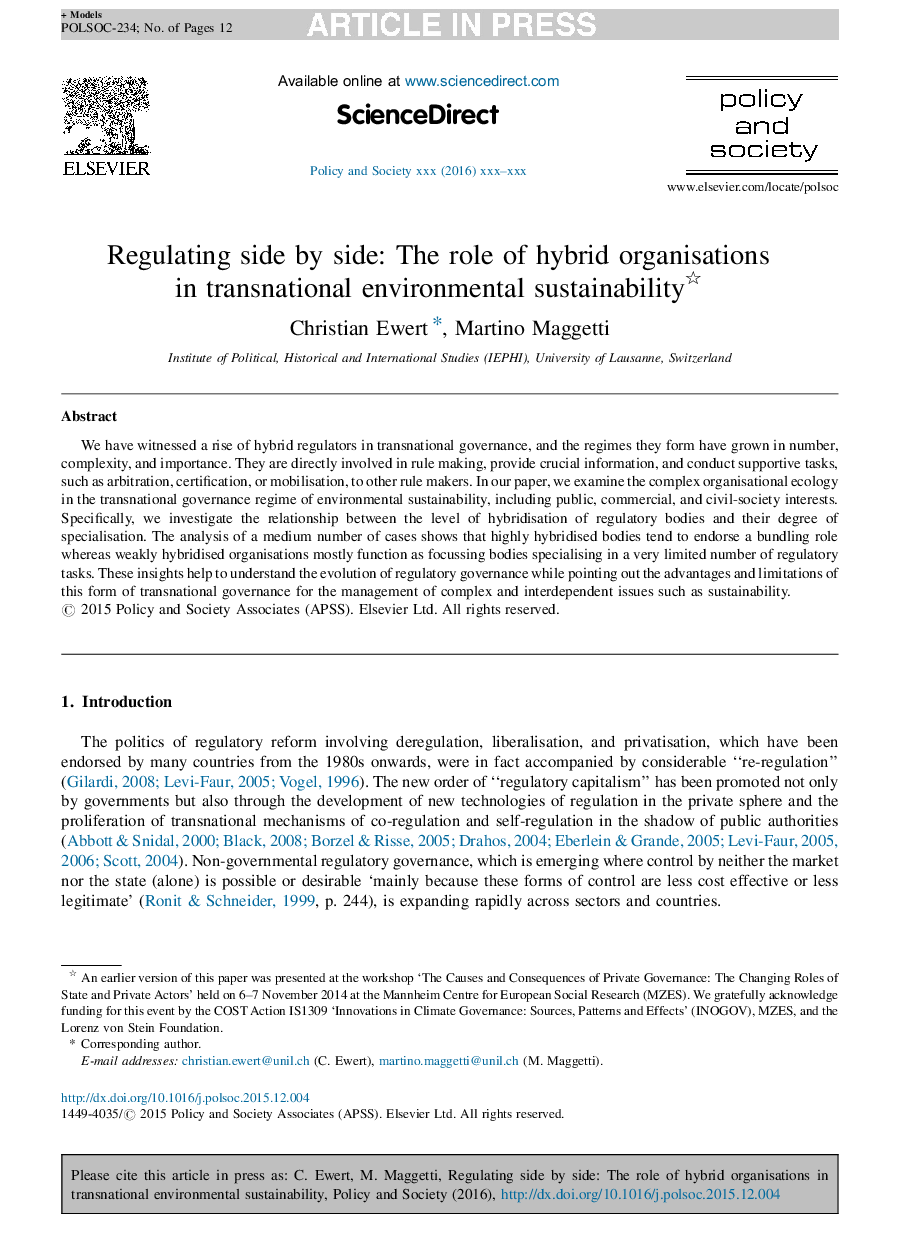| Article ID | Journal | Published Year | Pages | File Type |
|---|---|---|---|---|
| 5118409 | Policy and Society | 2016 | 12 Pages |
Abstract
We have witnessed a rise of hybrid regulators in transnational governance, and the regimes they form have grown in number, complexity, and importance. They are directly involved in rule making, provide crucial information, and conduct supportive tasks, such as arbitration, certification, or mobilisation, to other rule makers. In our paper, we examine the complex organisational ecology in the transnational governance regime of environmental sustainability, including public, commercial, and civil-society interests. Specifically, we investigate the relationship between the level of hybridisation of regulatory bodies and their degree of specialisation. The analysis of a medium number of cases shows that highly hybridised bodies tend to endorse a bundling role whereas weakly hybridised organisations mostly function as focussing bodies specialising in a very limited number of regulatory tasks. These insights help to understand the evolution of regulatory governance while pointing out the advantages and limitations of this form of transnational governance for the management of complex and interdependent issues such as sustainability.
Related Topics
Social Sciences and Humanities
Social Sciences
Geography, Planning and Development
Authors
Christian Ewert, Martino Maggetti,
